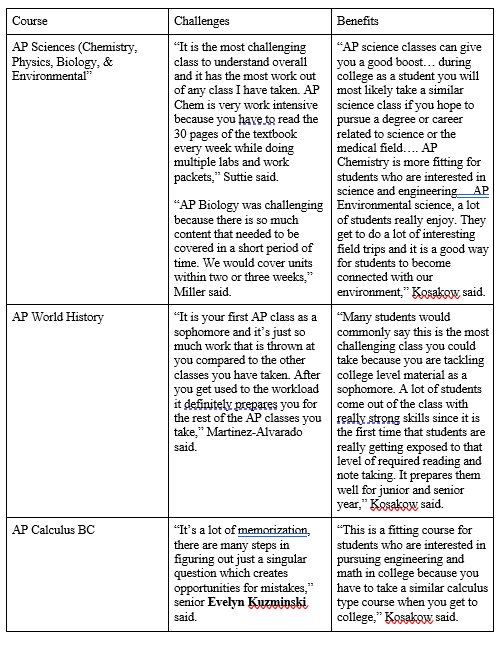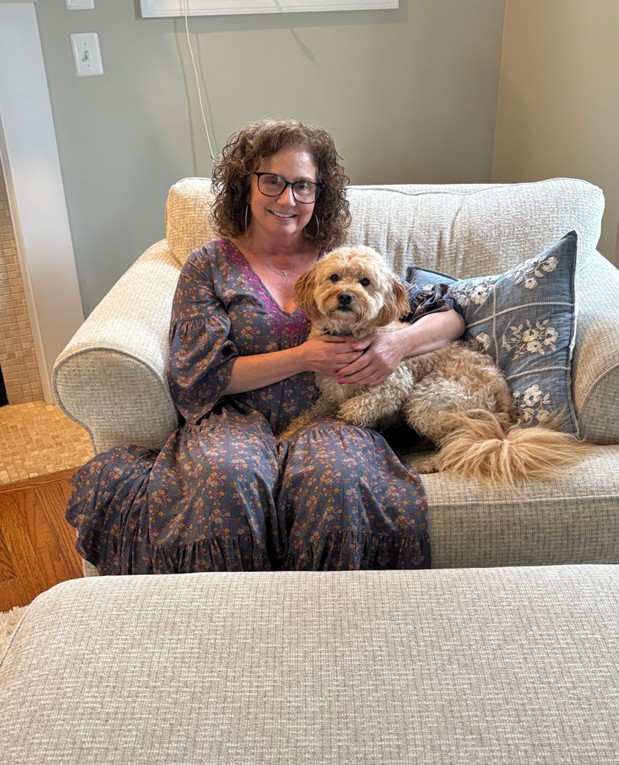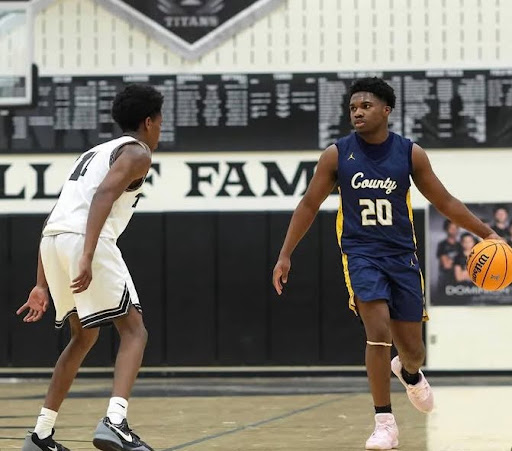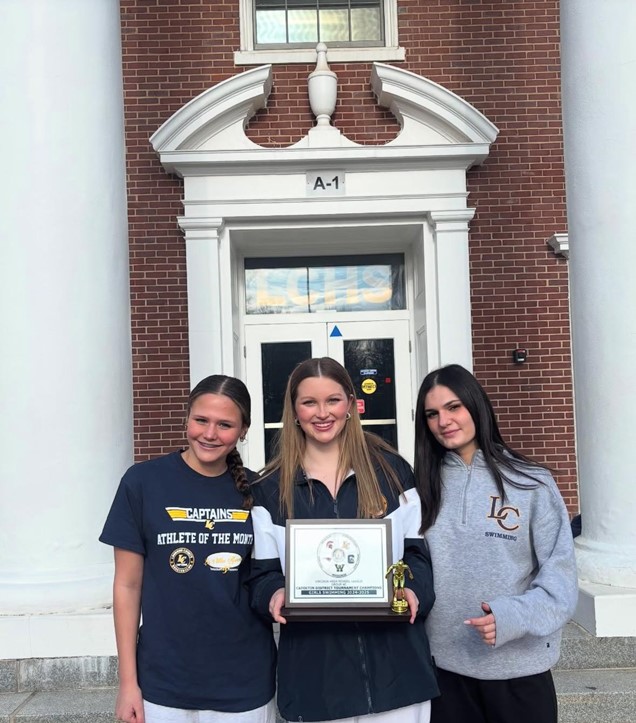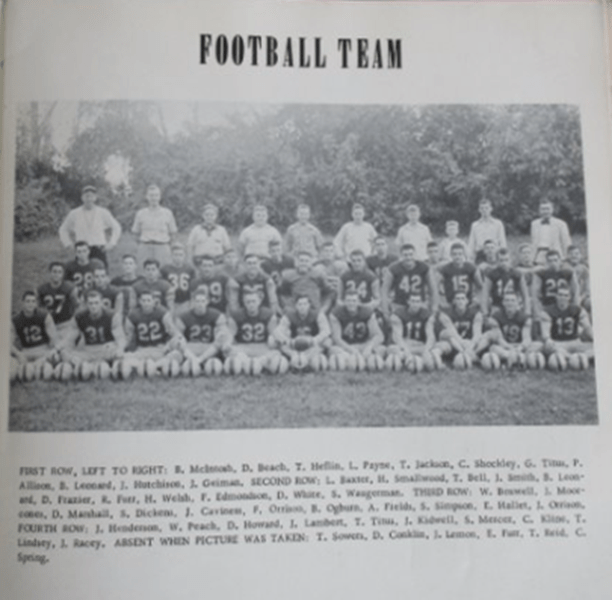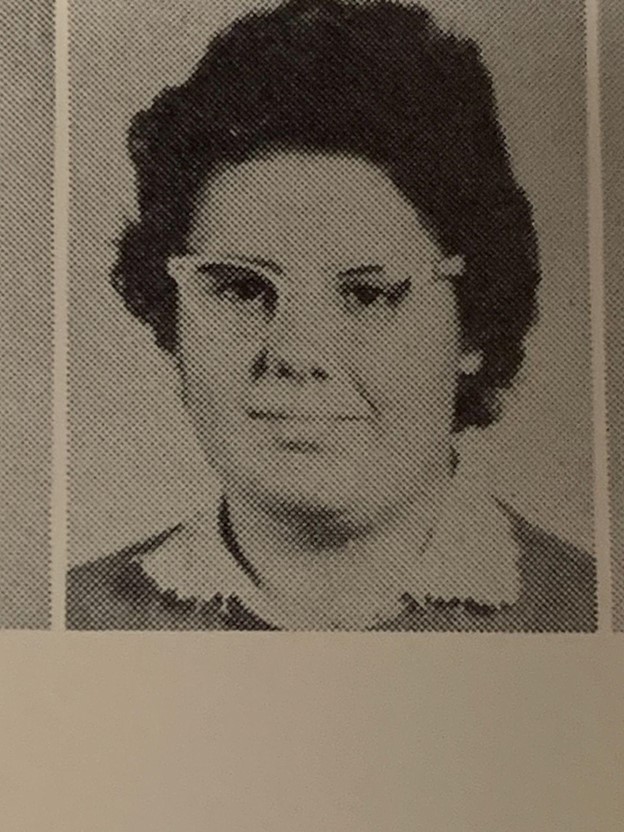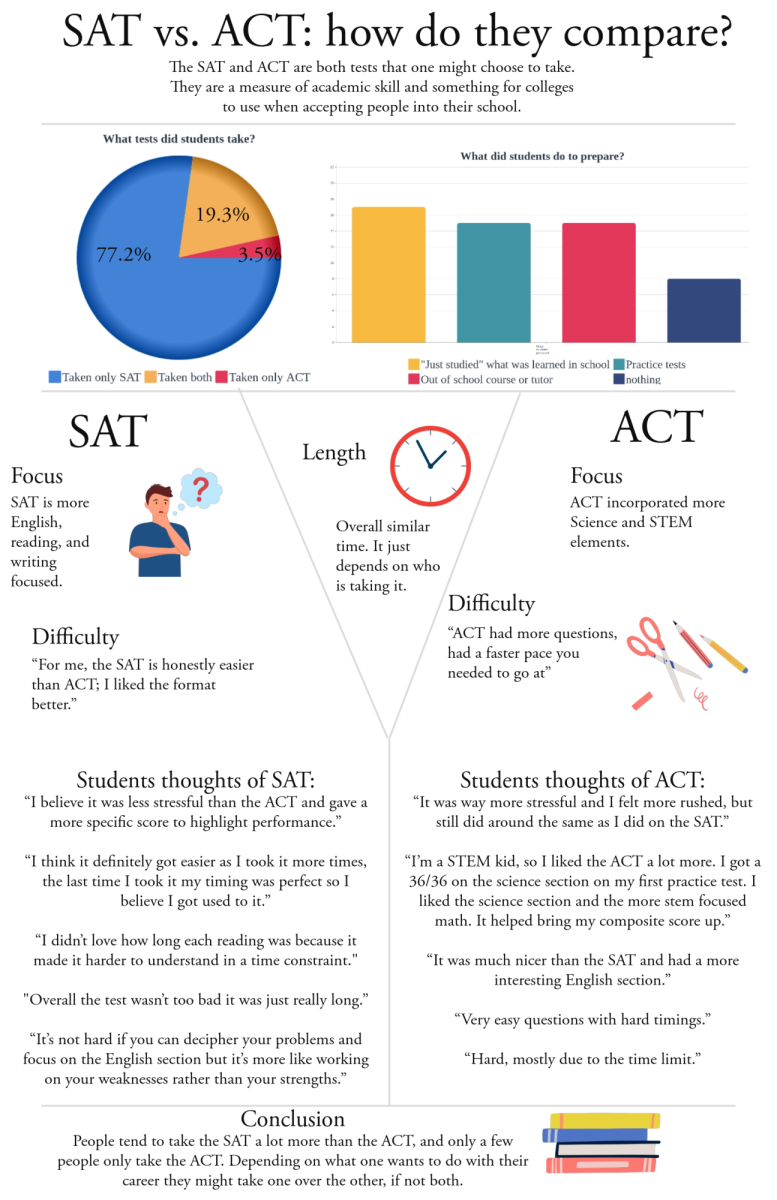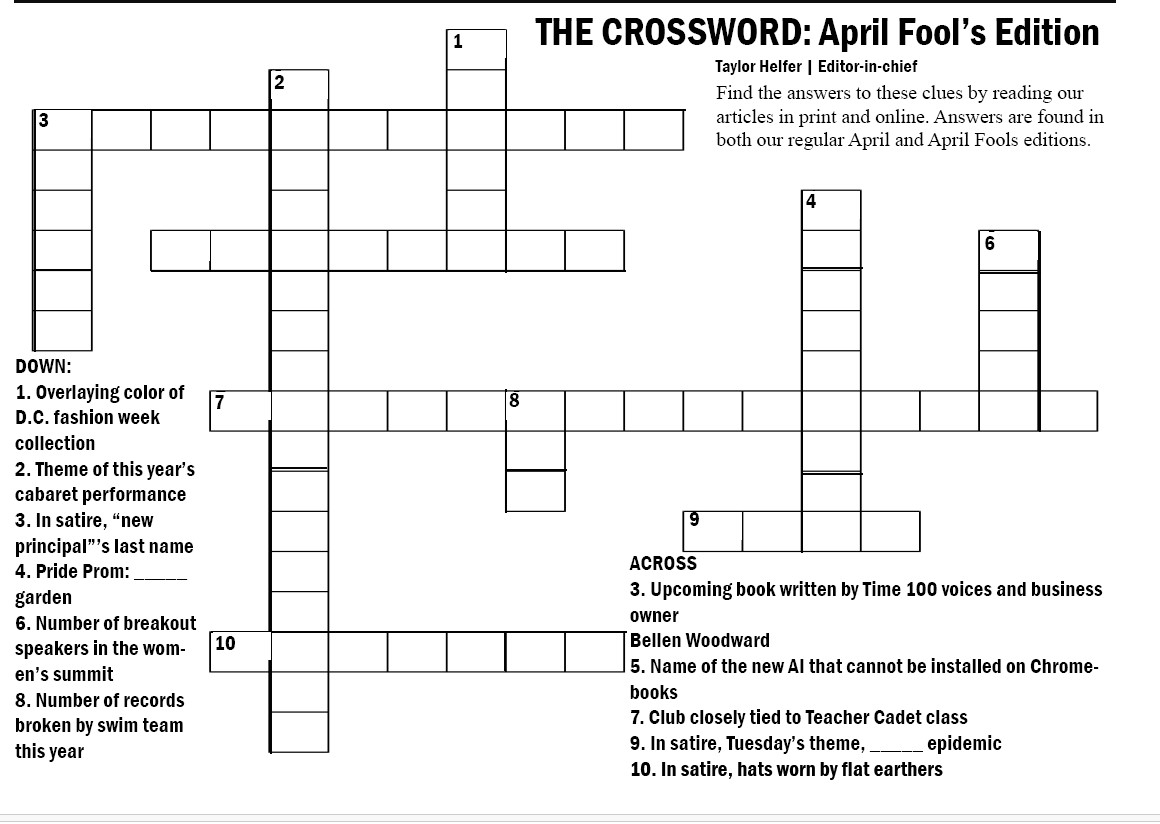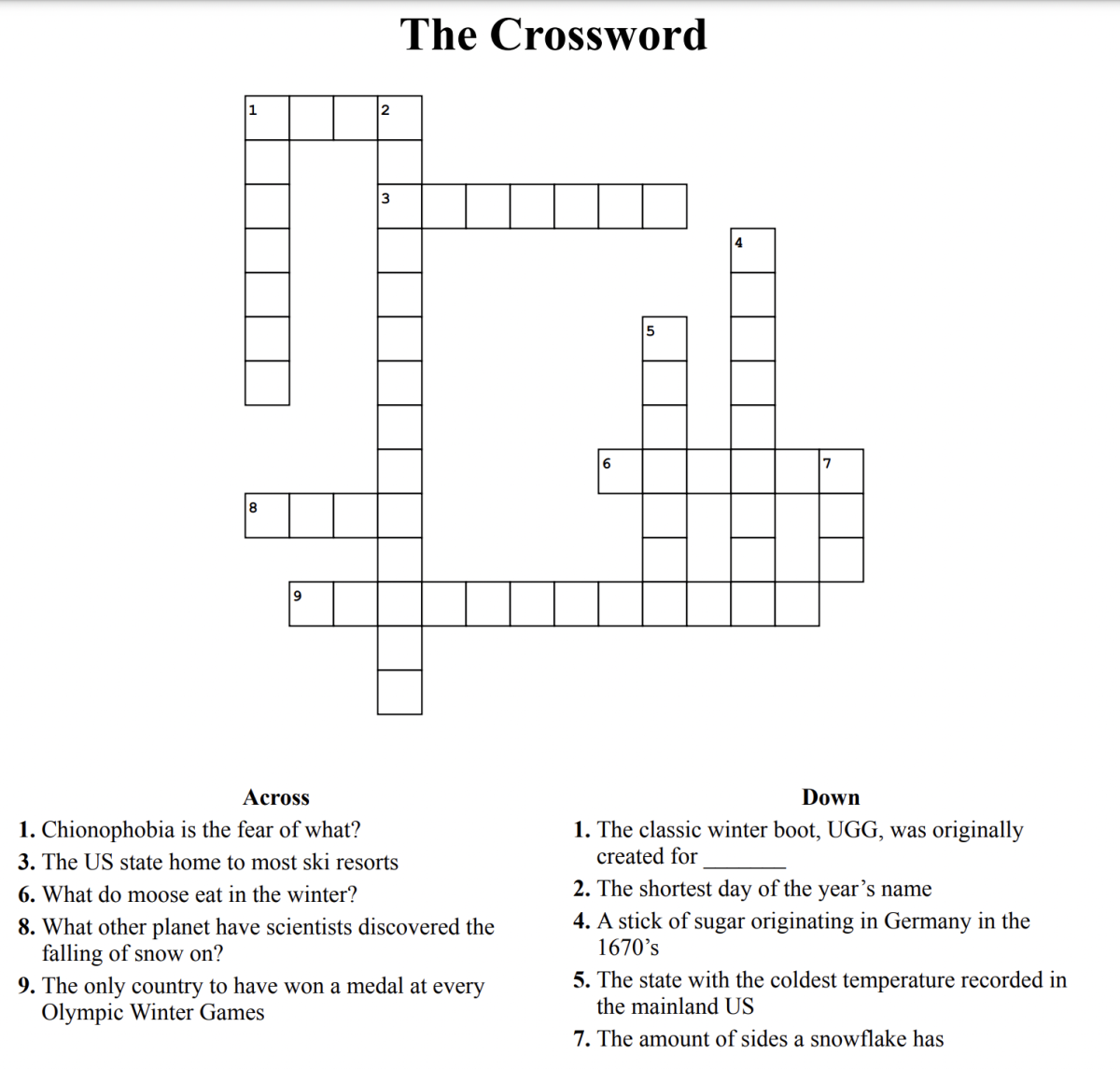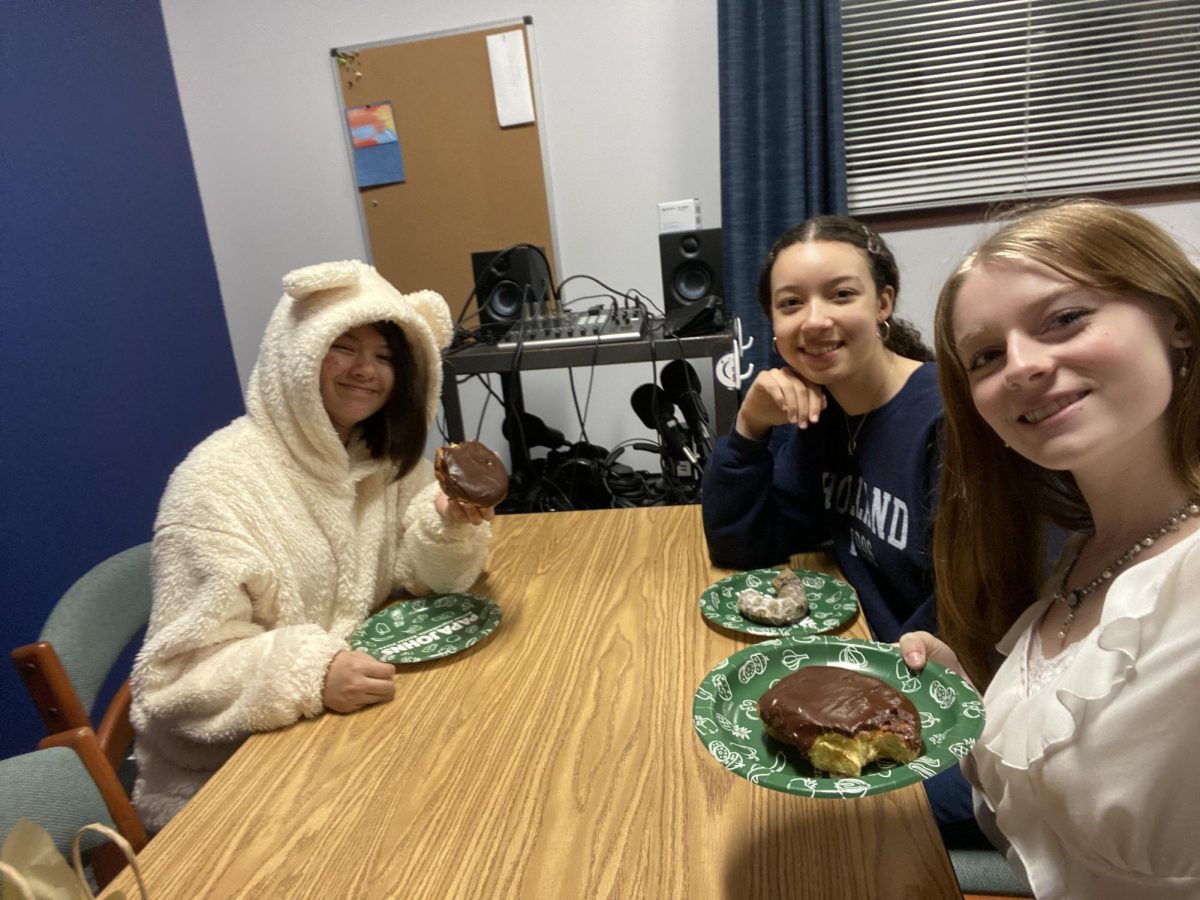The buzzing of senior Robert Suttie’s alarm clock starts his day. After an intensive seven hour school day of four AP classes, Suttie is far from done. Directly after school Suttie commutes straight to his four hour shift working as a lifeguard at Ida Lee Recreation Center. 8:30 P.M. declares the end of his shift before the quick transition to his 9:00 P.M. swim practice. 10:00 P.M. Suttie is finally home and jumps into his schoolwork in order to maintain pristine grades in each of his seven AP classes.
Suttie is not the only senior that experiences this work driven-schedule, considering the average GPA is increasing according to K12 dive reporter Anna Marold. Students often prefer to take classes that academically challenge them despite the tight schedule that follows.
“I have taken honors and higher level classes the majority of high school,” senior Charlotte Marland said. Marland is the Family, Career and Community Leaders of America communication manager and the parliamentarian of the Nation Honors society.
Marland, among many other students, focuses on pushing herself to take challenging courses ranging between Advanced Placement, Dual Enrolment, and honors classes.
Senior classman Izzy Miller holds a similar opinion. “It is worth taking higher level classes because everyone here takes them and if you don’t it can act as a disadvantage to you,” Miller said.
The competition among students has been increasing just as quickly as academic scores, considering that colleges will review their test scores, essays, grades, course schedule, GPA. Competing with fellow students has a major effect on the student atmosphere and mentality.
According to school counselor Beth Kosakow, most students who chose to take higher level classes such as Dual Enrolment and Advanced Placement courses plan on moving onto the college level.
“I would like to believe colleges focus on your essays and letters of recommendation, though I think it is ultimately your academics, and if you are not going to a test-optional school, then SAT and ACT scores are a huge factor,” Suttie said. As the current senior class valedictorian, Suttie addressed that he wished colleges would focus more on how well rounded students are but still continues to believe that colleges are being the most equitable when they concentrate on “the numbers.”
The stress from senior year easily takes a toll on students academically, and balancing their focus between extracurriculars and college applications can have a major effect on students’ time management. Senior classman Carolina Martinez-Alvarado is active in extracurriculars, including National Honors Society, along with Science, Spanish, and Music National Honors Societies. Outside of school she finds herself at practice as a drum major in band and is taking on a new role as field conductor and leads her band during the daily practices during the season. Martinez-Alvarado also is one of the Loudoun County Crew team captains. Similar to many other students, Martinez-Alvarado’s packed schedule creates many obstacles when trying to balance her time.
“When I am not at practice, my after school consists of a lot of homework. Definitely during marching season it gets difficult to manage my time. Though my phone is not a big distraction for me I find it easy to turn it off to help me stay focused,” she said.
Many factors play into the role of making a course challenging between the workload, teacher, peers, and subject.
“There is a difference between conceptually hard and a large workload. Is it hard to manage or is it hard to understand? The combination of both really makes a difficult class,” Suttie said. “At the end of the day you should be happy with the subjects you are taking, but what really matters is the people in your class and your teacher,” he said.
“Aside from the basic benefits such as the GPA boost and college credits, I think that these courses help students learn how to tackle more challenging material and it helps set them up better for college,” Kosakow said.
